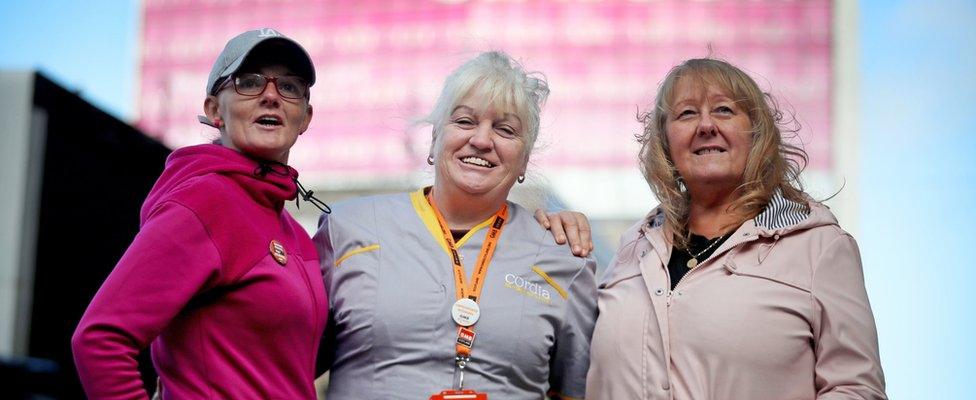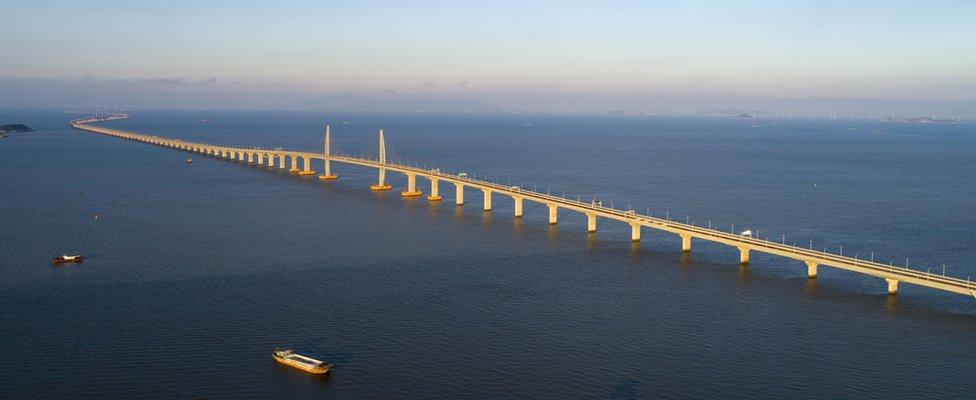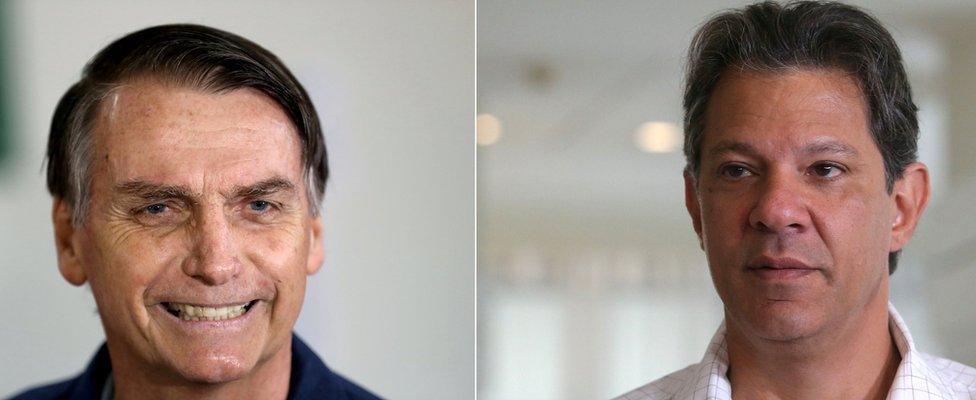Five things to know for the week ahead
- Published
It's Monday, it's a new week, and while we won't pretend to know everything that's going to happen over the next seven days, we have some sense of what's coming up.
Here's your briefing on some of the most important and interesting stories happening in the week ahead.
1) A strike for equality

City council employees Gillian Docherty, Shona Thomson and Eileen Dougall will be on strike
What's happening?
About 8,000 women in Glasgow are going on strike for equal pay on Tuesday and Wednesday.
Why does it matter?
Ten months of talks between unions and Glasgow's city council failed to come to a solution and now thousands of care workers, school cleaners, caterers and other female council workers are to walk out of their jobs.
The Unison trade union says it is the largest industrial action of its kind in the UK in more than 40 years, since the Ford machinists' strike, which was depicted in the film Made In Dagenham.
The city council has criticised the plans to strike, and said the unions' timeline for an agreement was unrealistic.
To understand more about what's happening, you can read our explainer here.
2) Flag furore

Sagi Muki of Israel bites his gold medal at a tournament in Tel Aviv in April
What's happening?
From Saturday, Israeli athletes will be allowed to take part in a judo tournament in the United Arab Emirates under their own flag, and with the Israeli anthem played.
Why does it matter?
This is about more than just judo.
It's about a country that doesn't acknowledge Israel, and has no diplomatic ties with it, making a major concession (even if it doesn't reverse course entirely).
Last October, Israeli athletes who won medals in the Abu Dhabi tournament were greeted by a generic anthem, not their own. Then one UAE athlete refused to shake the hand of his Israeli competitor.
And then, last month, the International Judo Federation cancelled the Abu Dhabi event scheduled for this week because Israeli flags would not have been allowed.
Now, the UAE has reversed that decision, and the tournament will go ahead. It's a small but significant event in a region where Israel has few allies.
3) A very long journey indeed

What's happening?
The world's longest sea bridge will open on Tuesday - it spans 55km (34 miles) and connects the cities of Hong Kong and Macau as well as the mainland city of Zhuhai.
Why does it matter?
It's not just a feat of construction - six years of planning, eight years of work, a 6.7km tunnel to allow ships to pass, a 625-metre artificial island - even if that in itself is impressive.
It will help transform what's being called the Greater Bay area into what China hopes will become a huge economic hub.
It will slash travel times between the cities, which will make it easier to transport goods to mainland China from Hong Kong's airport, the world's busiest cargo airport.
But there are also concerns that the bridge could be another way for China to chip away at Hong Kong's autonomy, external.
4) Brazil decides

Jair Bolsonaro (L) is facing off against Fernando Haddad (R)
What's happening?
The world's fifth most populous country will vote for its next president in the second round of its election on Sunday.
Why does it matter?
There's a lot at stake in the race to head up the country of more than 200 million people.
Far-right candidate Jair Bolsonaro is leading the polls. He's a former army captain and has been condemned as sexist (he once said he wouldn't employ a woman on the same salary as a man as she might get pregnant) and homophobic (he said he couldn't love his son if he was gay).
But his tough-on-crime stance is appealing to many. Leftist Workers Party candidate Fernando Haddad, a former mayor of São Paulo, Brazil's biggest city, is his opponent.
5) Times a'changin'
What's happening?
Clocks go back an hour across the European Union at 01:00 GMT on Sunday. On most of the continent local time will change to 02:00. In the UK and Portugal, it will become 01:00 - the same as GMT.
Why does it matter?
Well, unless you want to turn up an hour early for meetings for the next six months, it probably ought to matter to you.